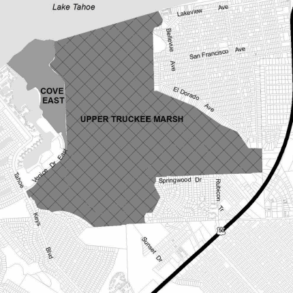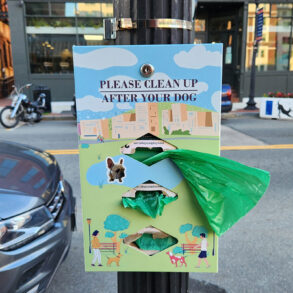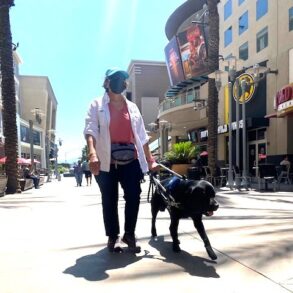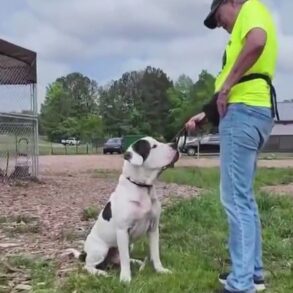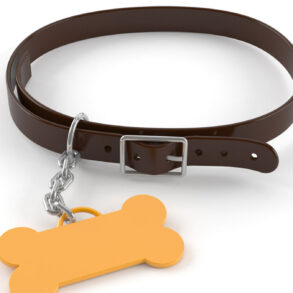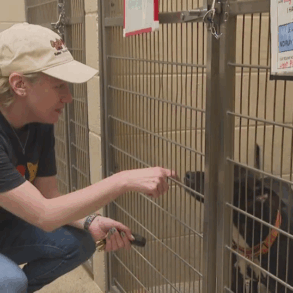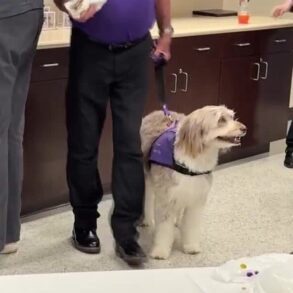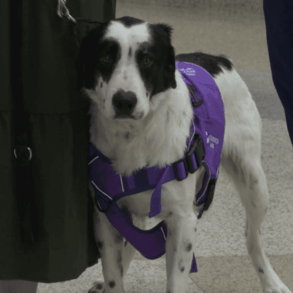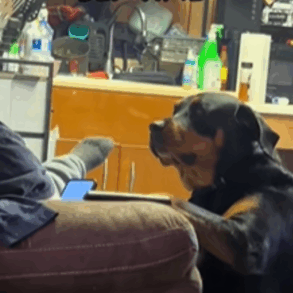
Stranded, hungry pelicans are being found along California’s coast
International Bird Rescue treated more than 400 brown pelicans in 2024, when this video was taken, and is closing in on 200 this year.
Service dogs have become a common feature in California’s public spaces over the years, but fake service dogs, advocates say, are hurting real service dogs’ credibility and exacerbating the challenges that people with disabilities who rely on service animals already face.
Fake service dogs are poorly trained or untrained animals falsely passed off by individuals trying to access restricted places or benefits.
“There are individuals and organizations that sell service animal certification or registration documents online,” federal officials warn. “These documents do not convey any rights under the (Americans with Disabilities Act) and the Department of Justice does not recognize them as proof that the dog is a service animal.”
Under Title III of the Americans with Disabilities Act of 1990 (ADA), task-trained service dogs have legal access to places of public accommodation.
People with disabilities do not have a right to bring emotional support, companion animals, or therapy animals into businesses or public spaces, according to Disability Rights California.
It is important to understand what qualifies as a service animal in California before attempting to venture into any of those establishments with an animal.
What qualifies as a service animal in California?
In California, under the ADA, a service animal is defined as a dog that has been individually trained to do work or perform tasks for an individual with a disability, according to a factsheet by the Department of Justice (DOJ). The task(s) performed by the dog must be directly related to the person’s disability.
Disabilities include physical, sensory, psychiatric, intellectual, or any other type of mental disability, according to Disability Rights California.
Examples include a person with diabetes whose service dog can alert them when their blood sugar is too low or too high or a person with depression is reminded by their service dog to take their medication.
Service dogs aren’t required to complete a specific, national certification, according to the DOJ, and people with disabilities do not have to use a professional service dog training program but can train the dog themselves.
Any breed of dog can be a service animal.
Under California law local animal control departments can issue identification tags to people who use and train service animals, according to Disability Rights California, but unless the dog is a service animal in training, the tags are not required.
The ADA does not require service animals to wear a vest, ID tag, or specific harness, but they are subject to local dog licensing and registration requirements.
Where are service animals allowed in California?
The ADA requires businesses and organizations that serve the public to allow people with disabilities to bring their service animals into all areas of the facility where customers are normally allowed to go, according to the California DMV, such as restaurants, hotels, taxis, busses, grocery and department stores and hospitals and medical offices.
This includes the line at the salad bar, hospital patient rooms, and in the ambulance with their handler if the dog does not pose a threat or interfere with the paramedics, according to the ADA.
Hotels cannot limit service dogs and their handlers to rooms marked “pet friendly.”
Entities that have a “no pets” policy generally must make an accommodation to allow service animals into their facilities, according to Disability Rights California.
Service dogs that are in training are not covered under the ADA. Still, the California Disabled Persons Act allows people with disabilities and those who train service animals to bring a dog into any public place to train the dog to provide a disability-related service, per Disability Rights California.
Rules for service animal handlers in California
Service animal handlers—either the person with the disability or a third party accompanying the pair—must always have control of the service dog, per the ADA.
Businesses and public spaces covered under the ADA are not required to allow service animals when the dog poses a direct threat to others, has a history of threatening behavior, or if the presence of the animal would “fundamentally alter” the nature of the goods, services, or programs provided to the public.
Examples include when a service dog is prohibited from accessing an area of a school dormitory with students who are allergic to dog dander or an exhibit at a zoo that houses prey or predators for the dog.
Mariyam Muhammad and Marc Ramirez contributed to this report.
This post was originally published on this site be sure to check out more of their content.




